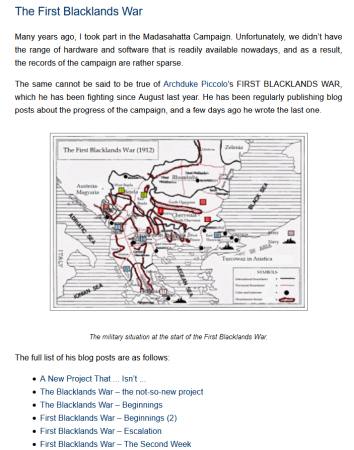
341 pages. Introduction.
Percival Christopher (P.C.) Wren (1887-1941) was a writer of Colonial adventure novels and short stories. Beau Geste is his best known work, and established the French Foreign Legion genre in print and video. Though Wren romanticized the Legion, the details he relates are mostly accurate. He claimed to be a Legion veteran, though no substantiating evidence has ever been found.
As the novel begins, two old friends run into each other on their way from Africa to England. Major de Beaujolais, in French service, relates to his friend, George Lawrence of the Nigerian Civil Service (British Empire), the strange and mysterious events pertaining to the relief of Fort Zinderneuf from Arab attack in the Sahara (North Africa). As related in dramatic fashion, the fort was inhabited solely by dead legionnaires, still at their posts defending the walls!
de Beaujolais then reveals that the dead commander, slain by a bayonet, held in his hand a confession of a jewel theft by someone named Michael Geste – who was personally known to Lawrence, through his relationship with Lady Patricia, whom he loved from afar.
Lawrence then visits Lady Patricia on his return to England, but she denies any knowledge of the theft of her gem, the famous Blue Waters sapphire.
Flashback to several years ago, when a handful of young men and women are living under Lady Patricia's care, including young ladies Claudia and Isobel, and the orphaned Geste brothers (Michael 'Beau' and Digby, twins, and younger John). Also in the household is the Chaplain, a former admirer of Lady Patricia who is now afflicted mentally. The story is now told from the perspective of John Geste.
One day, when the Blue Waters has been brought out for viewing, the lights go out due to a power failure… and when the lights come back on, the gem is missing!
Michael Geste then goes missing, apparently to deflect blame from anyone else for the crime. Then Digby Geste goes missing. And at last, John Geste leaves the country estate, correctly guessing his brothers' plan – to enlist in the French Foreign Legion!
The Geste brothers are indeed reunited in the Legion and sent to Africa, where they learn soldiering but come under the command of the sadistic Sergeant Major Lejaune. Meanwhile, a treacherous colleague eavesdrops on the brothers, and concludes they are in possession of a valuable diamond – which he plots to steal. The brothers also befriend two Americans, Buddy and Hank. After several battles against the Arabs, the Geste brothers find themselves part of the garrison of isolated Fort Zinderneuf.
The story is told in a wonderful, well-plotted fashion. The characters are simple but colorful. The reader gets a picture of what life is like in the Foreign Legion.
The novel is a long one, with the Gestes joining the Legion about halfway through. The end of the novel is also a bit drawn out, until most of the mysteries are resolved.
Note that the author makes occasional use of stereotypes and slang terms with regard to blacks, Arabs, Italians and Jews that would not be appropriate today.
Can you game it? The novel describes two battles of the French Foreign Legion that could certainly be wargames, as well as several skirmishes in the Sahara.
Though I was familiar with the novel from other media, this was my first time reading it, and I was enthralled by the way the author began the story. The book is long and has its slow points, but the final defense of Fort Zinderneuf is thrilling. Highly recommended.
Although once considered a classic, I found that my local library system had only a single copy of the novel, and none of the sequels.
Reviewed by ![]() Editor in Chief Bill
Editor in Chief Bill ![]()
![]() .
.







